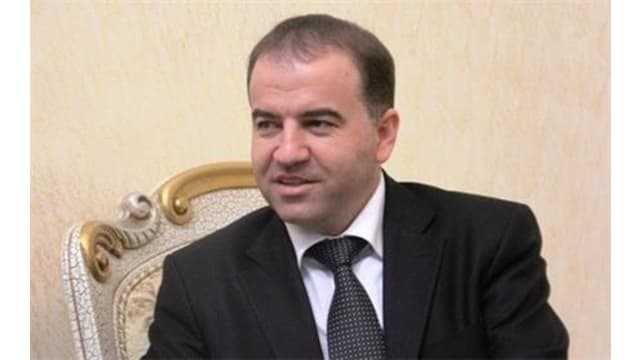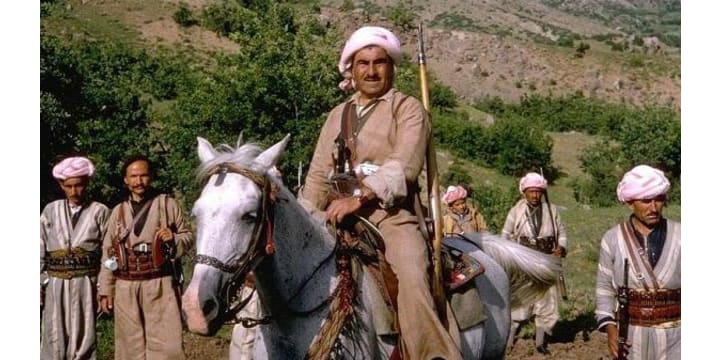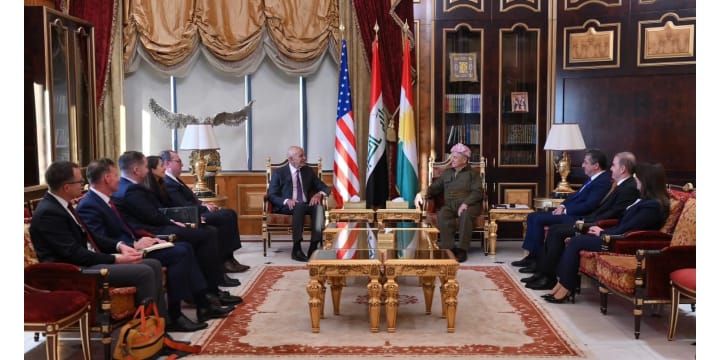
KDP official: Multicultural Kurdistan stands against ISIS
ERBIL, Kurdistan Region - The Kurdistan region of Iraq has for many years been a safe haven for different religions and ethnic groups.
Hemin Hawrami, a member of the Leadership Council of the Kurdistan Democratic Party (KDP), believes the region’s multiculturalism is even more important with the arrival of more than 1.5 million internally displaced people and refugees, and the presence of the Islamic State at its borders.
http://rudaw.net/english/interview/01062015
In fact, the Kurdistan Regional Government and parliament no longer uses the politically charged word “minority,” instead referring to the “different components” of Kurdistan.
Rudaw spoke to Hawrami, head of the KDP foreign relations office, who is a leading advocate for his party to the outside world.
Rudaw: Why have you stopped using the word “minority?”
Hemin Hawrami: People are different based on their sex, ethnicity or religion. When you talk about minorities, there are some negative aspects. We don’t count their numbers: they are components of the Kurdistani society.
This goes for the KRG as a whole, in all the documents, even in the parliament. In a democracy, when people join political parties, definitely there are minorities and majorities, but for ethnic majorities it does not mean they are superior to others.
What are those different components?
The Kurds, the Turkmen, the Assyrians, Chaldeans, the Arabs that are living here. Religious components are the Muslims, Shiite and Sunnis, Yezidi, the different Christians. We have Kakaei, Sabians…
Do you have a special policy to make sure the smaller components benefit from living in Kurdistan?
Most important for us is their partnership, based on participation and power sharing. To make sure their rights are protected, the constitution gave some their own representatives [in the parliament]. In the government they have their people too. We had [Christian governor of Erbil and minister] Franso Hariri, who was assassinated by Ansar al Islam in 2001. In the provincial council of Erbil, we have an alliance with the Christians, for them to be within the process. A member of the KRG politburo is a Christian.
At the same time, inside the different groups the line towards the KRG is not always positive. Within the Yezidi and Christian communities many are critical.
We understand and recognise that, but these voices don’t make up a majority. Also within the Kurdish community negative feelings towards the KRG exist. This is part of the political process. If you look at the results of elections and people’s participation, generally there is a positive mood. [The Christian suburb of] Ainkawa is directly connected to the Council of Ministers, in order to provide them with direct administrative decentralised power sharing.
One of the biggest components of Kurdistan, the Yezidis, does not have a seat in the parliament, while smaller groups like Christians and Turkmen do. Can you explain that?
Yezidis are not a different ethnic group, they are Kurds. Within the Kurdish blocs in the parliament we have Yezidis. The quotas are based on ethnicity. It will not work if you give a proportion to every religious group within the community.
Yet some Yezidis recently have set up a new Yezidi party because they want to have more political influence.
Neither us nor that party can decide on the fate of the Yezidis. All has to be decided in elections, and since 2005, the outcome is clear: the Yezidis feel they are Kurds first, and are pro-Kurdistan. The call to be seen as a separate ethnic group is related to internal conflicts inside Kurdistan. It’s a political issue.
It might be related to discrimination in society towards Yezidis. Some people show prejudices against them. What can you do about that?
It involves individuals only, and I assure you it can be dealt with. We are working continually so that these voices are not getting stronger. Kurdistan’s society is by nature tolerant. Most Yezidi IDPs are in the Duhok province. Do you know how much help the people have provided to them?
In the public media, political parties and civil society, these voices are absent. Perhaps some components were disturbed, because with many IDPs in the area, their kids could not go to school. The flames may have been fanned by negative voices inside the Yezidi community, accusing Kurdistan. We have to make sure the voices on both sides do not get stronger.
How important is it to stress Kurdistan’s multiculturalism with ISIS and its racist discourse at the borders?
The multicultural aspect is a source of strength for Kurdistan. That must be maximized. We will not allow it to be diminished by anything.
We are all worried about the threat of ISIS, as they are targeting the Kurds and all liberal people. We have not noticed a mentality change in the public opinion towards more anti-Yezidi or anti-Arab, while in Shaklawa, for instance, we now have 37,000 Arabs and only 33,000 Kurds.
When there were incidents like bombings or beheadings, some asked why we should let these Arabs in our country. Our strong reaction is, that this is a racist voice that has no place in Kurdistan. That, by fighting the demon, we should not demonize ourselves. We are very proud that we are a tolerant and open-minded nation and these are isolated voices.
If Iraq’s culture and society had accepted multiculturalism, we could have avoided many of the civil wars. For more stability, multiculturalism should be protected, as accepting each other will help to live together.
Yet with all the refugees and IDPs the fabric of Kurdistan is changing. How can you keep it tolerant?
We had 28 percent of our population added in less than a year. We have to make sure the security of Iraq is improved so their stay is temporarily and they can go back. Secondly, we have to find more job opportunities for these people, so they will add capabilities to Kurdistan instead of being a liability. But to create jobs, we need a secure environment, oil exports and a better relationship with Baghdad. And the Iraqi government must take its responsibility for these people, too.
To promote tolerance, we have to work in the security services, the media, education, and we have to let people participate in running their own areas and make sure their voice is heard. The rule of law must be for everyone, and the police must listen equally to both sides if there are criminal issues between people.
We will not allow one sect or one ethnic group to use Kurdistan for racism, for its anti-religious, anti-sectarian agenda. Kurdistan must be an umbrella for all.
http://rudaw.net/english/interview/01062015

